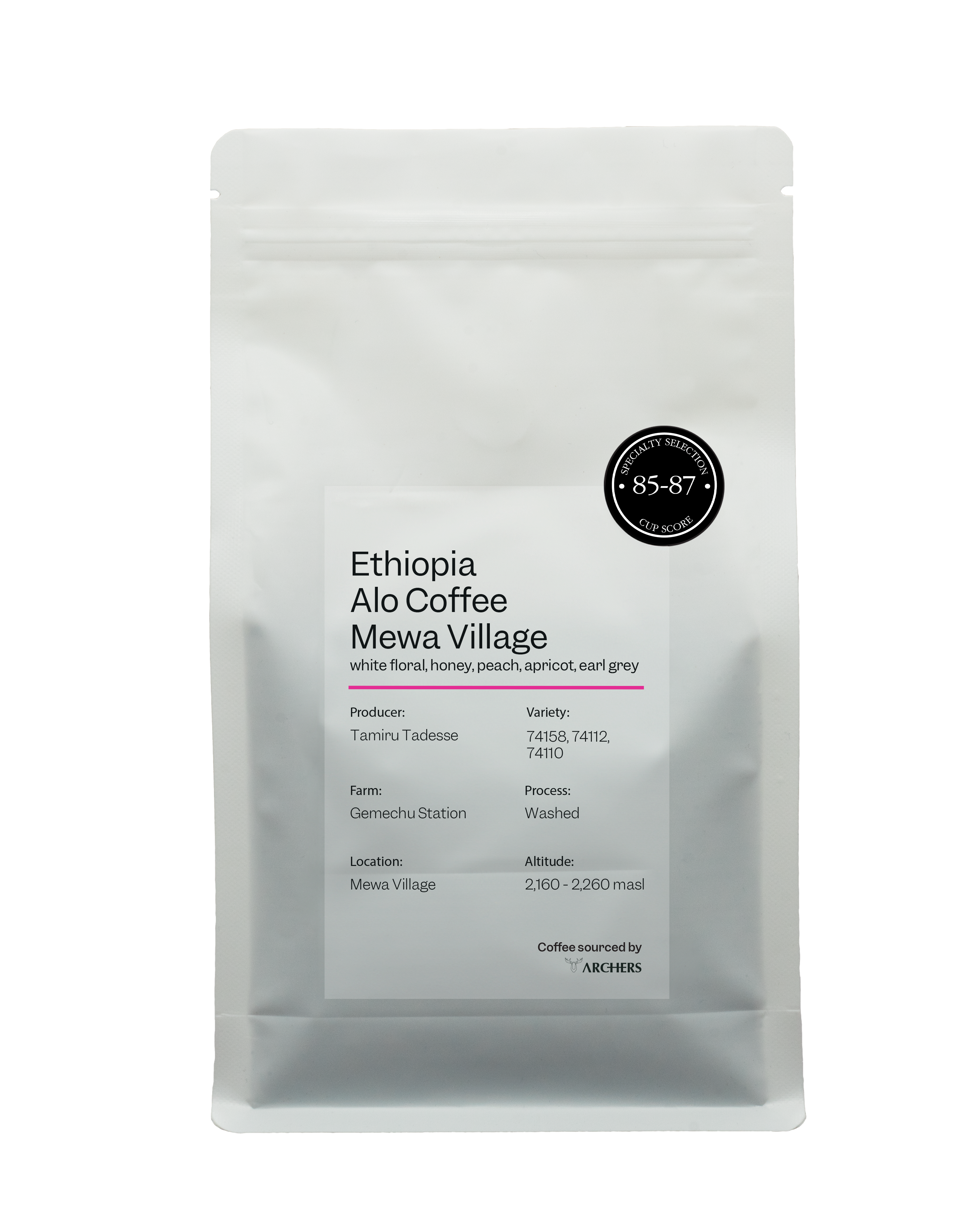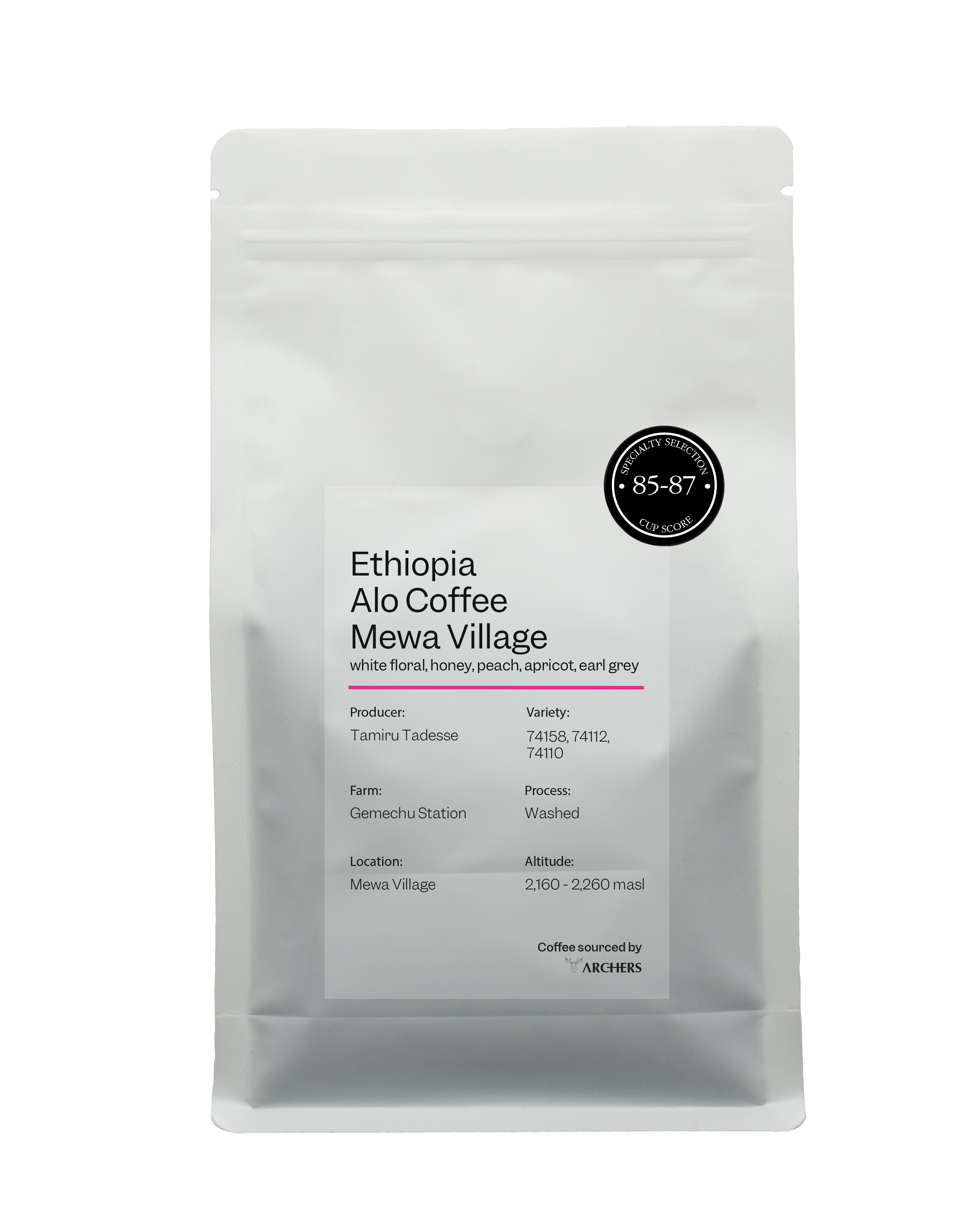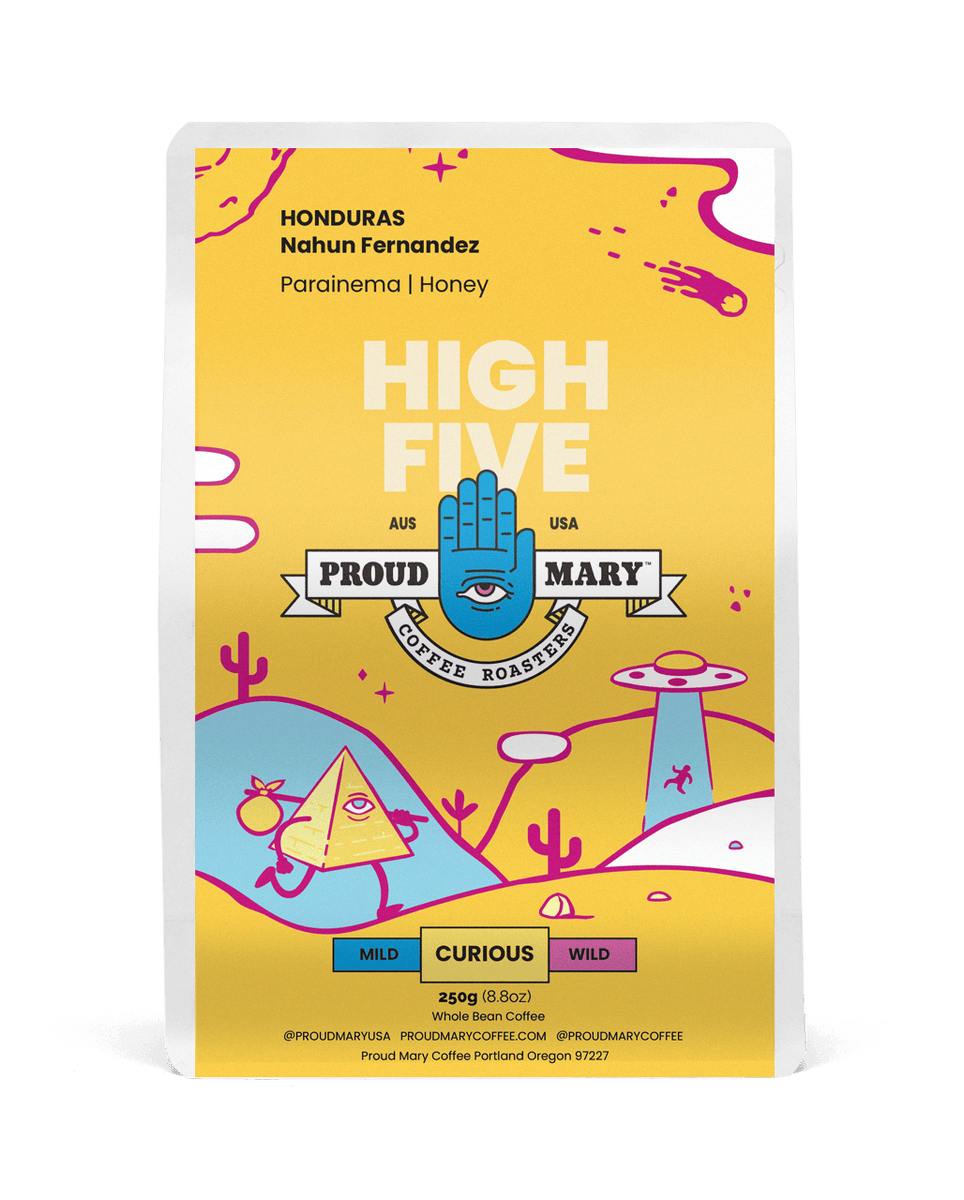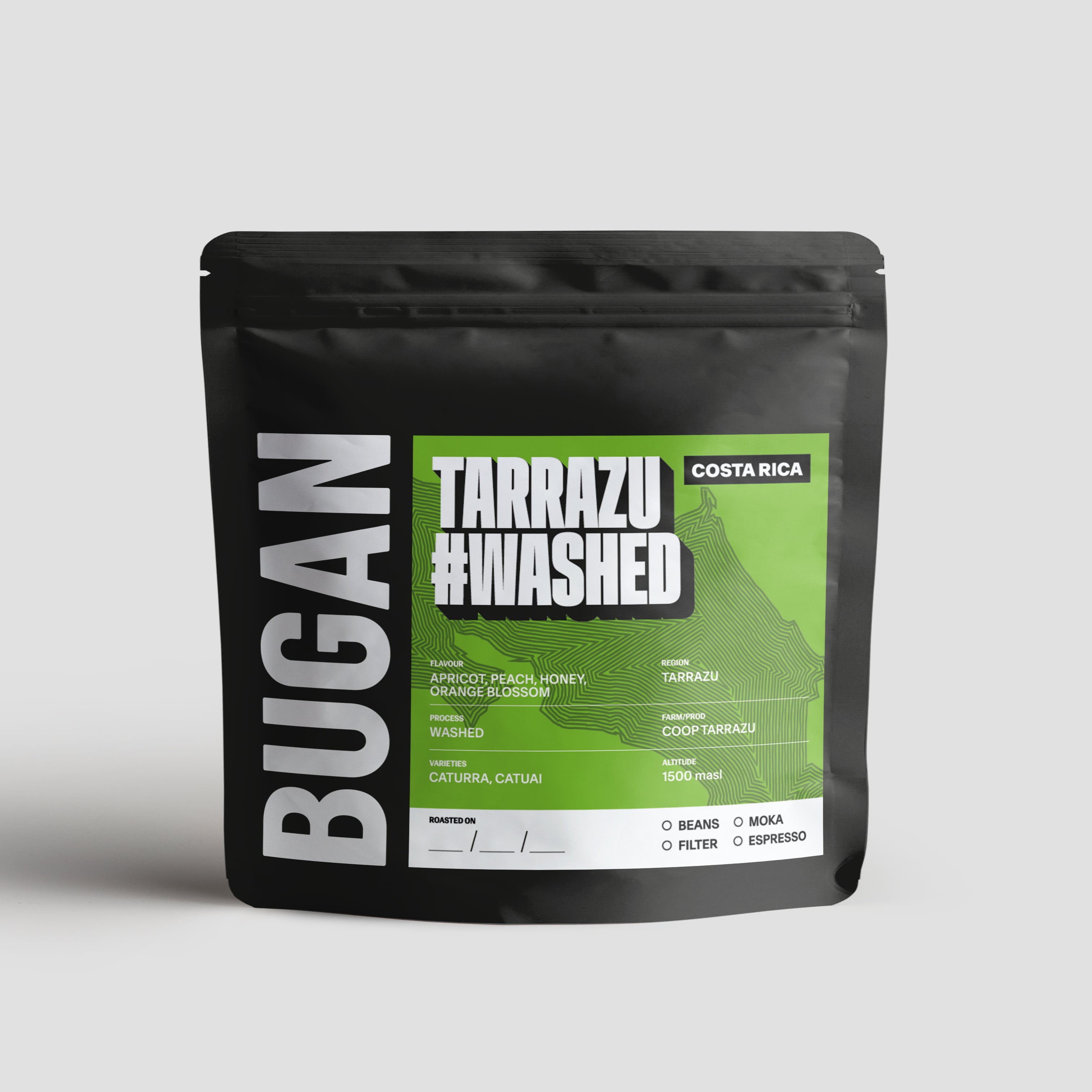
Ethiopia Alo Coffee Mewa Village
Tasting Notes
Description
Producer: Tamiru Tadesse Farm: Gemechu Station Location: Mewa Village Variety: 74158, 74112, 74110 Process: Washed Altitude: 2,160 - 2,260 masl Fermentation ▪▫▫▫▫ Sweetness ▪▪▪▪▫ Acidity ▪▪▪▫▫ Roast ▪▪▪▫▫ Only a year into establishing Alo Coffee Export Plc, Tamiru Tadesse had already managed to foster a commendable reputation among specialty coffee connoisseurs around the world, with a burgeoning client base across Europe, Asia, and the Middle East. In 2021 Tamiru won 1st Place at the Ethiopia Cup of Excellence & advanced closer toward his goal of bringing greater recognition and rewards to Sidama Bensa coffee farmers, whose hard work and dedication make top-quality coffees possible. Six years working in coffee, Sidama Bensa-born Tamiru saw the great disconnect between the exceptional flavors and high cup quality potential of his hometown's coffees and the way these were being undervalued across the market. It was also too clear to him how this put the smallholder coffee-growing families and the country's coffee industry at a huge disadvantage. A friend of Tamiru winning the 2020 Ethiopia Cup of Excellence inspired him to personally contribute to a solution by starting his company, Alo Coffee. Through Alo Coffee, he is able to provide the means for smallholders to process their laboriously cultivated, inherently organic, and flavor-rich coffee cherries into distinctive lots of the highest quality, and then match them with the specialty coffee communities that recognize their value and properly reward it. Alo Village is the site of the company’s processing headquarters where the coffee growers in the vicinity bring their coffee cherries for post-harvest processing. It is situated at remarkably high elevations from 2,400 masl. Like the rest of the smallholder farmers in the country, the inhabitants of Alo Village rely on the farmlands granted to their families by the government for income mostly from coffee and food mostly comprising false banana and maize. Since each parcel covers about 1 – 2 hectares at most, coffee yields by household are constrained and volumes do not reach marketable levels, until they are aggregated by producers like Alo Coffee. On their own, each family and the community do not have the most current knowhow and sufficient resources to increase their farms’ productivity, nor to maintain and enhance the quality of the soils as well as that of their coffee cherries post-harvest. The involvement of quality-oriented and eco-socially committed specialty coffee producers like Alo Coffee contributes to alleviating the livelihood of the coffee-farming families, such as in Alo Village. To immediately benefit the smallholder coffee growers, Alo Coffee purchases their coffee cherries at a significant premium that provides a decent income to cover household essentials and their children’s education-related expenses. With a view for the longer term, Alo Coffee also provides direct assistance to the smallholder farmers through knowledge-sharing around better practices in agronomy, cultivation, farm maintenance, and harvesting, while initiating and funding community development projects such as building schools in the communities within their scope. Further, by overseeing the end-to-end conduct of post-harvest processing, Alo Coffee unburdens the smallholders of the related risks and costs, enabling them to focus their attention and energy on maintaining the natural, unblemished condition of the land and looking after their coffee trees to ensure they flourish. By association with Tamiru and Alo Coffee, coffee-growing communities like Alo Village also have a better chance of their concerns and interests being acknowledged, advanced, and addressed by influential stakeholders across the industry. ‘Ethiopian heirloom’ is the general term commonly used to identify coffee originating from Ethiopia. It covers two classifications: Jimma Agricultural Research Center (JARC) varieties and regional landrace varieties. JARC varieties were developed and released to improve the productivity and livelihood of smallholder coffee farmers and boost the country's coffee industry. They are promoted and bred because of their good quality when grown at the recommended elevations, resistance to or tolerance of adverse elements, and adaptability to diverse environments. There are 40+ JARC varieties comprised mostly of pure line selections and a handful of hybrids. Regional landraces, meanwhile, are varieties that propagate in the wild, without regulated interventions. 74158, 74110, and 74112 are JARC varieties whose combined flavor potential we have grown familiar with in our years of sourcing and roasting coffees from the Ethiopia’s southern coffee-growing regions.
Origin
Purchase
Similar Beans
Based on tasting notes and processing method

Ethiopia - Alo Coffee Mewa Village
Archers Coffee

Honduras Nahun Fernandez Parainema Honey
Proud Mary Coffee USA

TARRAZU #WASHED – COSTA RICA
Bugan Coffee Lab

Vivid – Hybrid Carbonic Maceration Washed Gesha - Panama
Standout Coffee AB